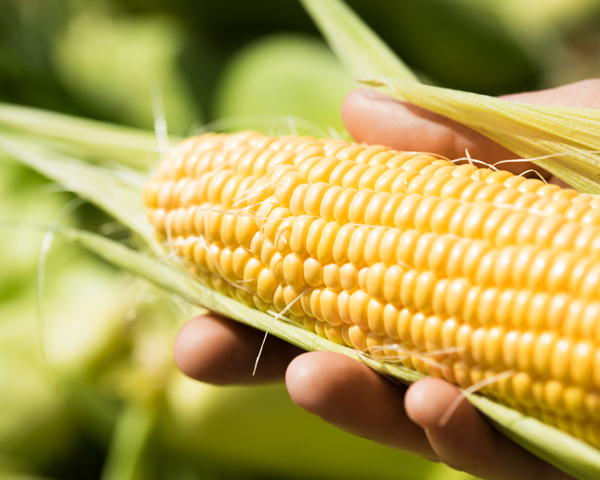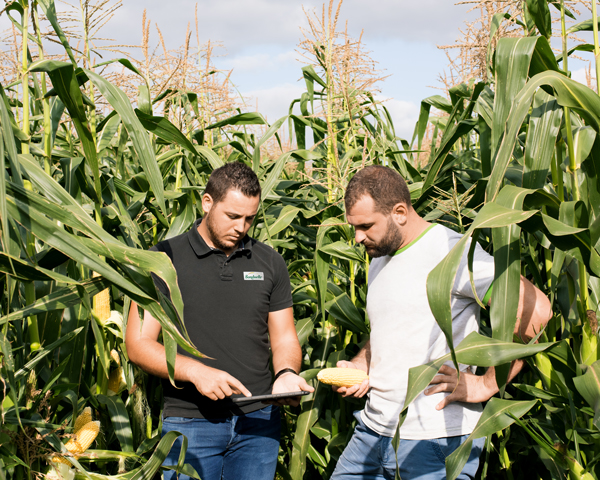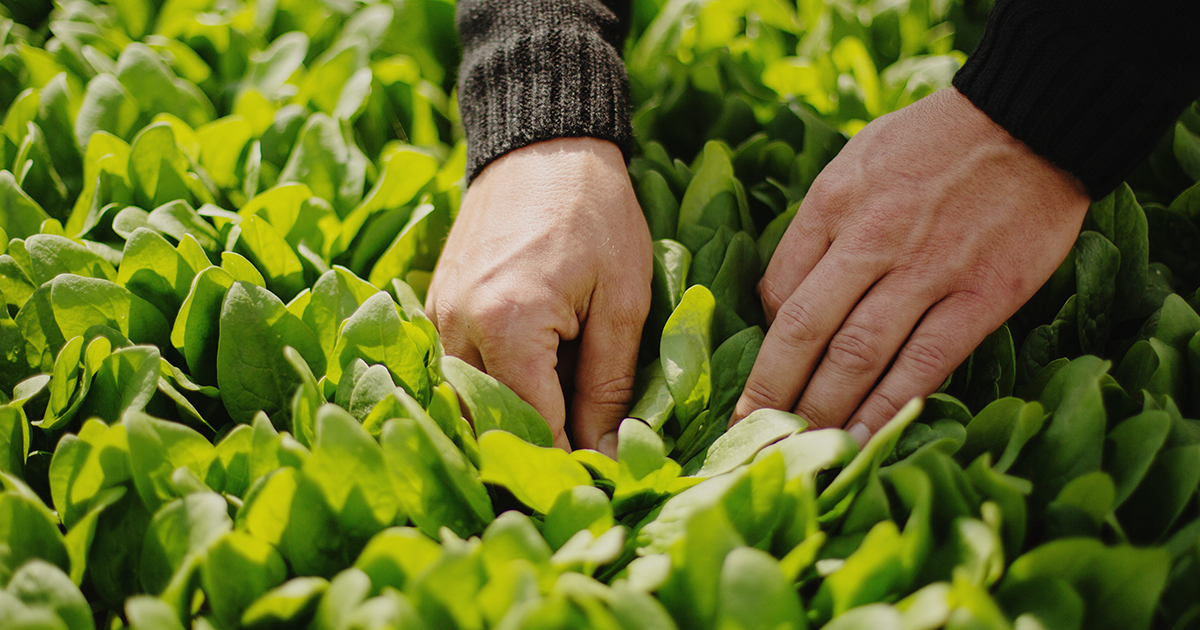Published at 2020, April 15th
The trends predicted by ConsoGlobe and AgroMedia are unequivocal. In 2020, food is the number-one concern among the French. Consumers want to eat better and would like to see brands take a stand against plastic use, how their food is sourced, nutrition, and more.
Bonduelle, which has been advocating for healthier and more sustainable food for years, is addressing these needs directly by formalizing its actions through an agreement called the B! Pact. Divided into three pillars, namely Planet, Food, and People, this pact guides the company’s decisions. Read on for a closer look at the Planet pillar and Bonduelle’s approach to the agro-ecological transition with Anne-Sophie Fontaine, CSR Director of Bonduelle Group.
Our CSR policy was created long ago. In fact, we have been working towards a healthier and more sustainable approach to agriculture for a number of years. Our first agricultural charter was created in 1996. Six years later, Bonduelle drafted its first CSR policy. In 2020, a new milestone was reached when we published our new CSR commitments, which include quantitative environmental and social targets to address the climate crisis.
Our goal is to minimize the use of chemical-based plant-protection products and increase our actions to preserve biodiversity. We are present in over 100 countries, we work with 3,100 farmers throughout the world, and we help feed millions of people. The only reasonable response to this challenge is a large-scale sustainable and diversified agriculture, which ranges from conventional agriculture to a without residue from pesticides approach and organic farming methods.
At Bonduelle, diversified agriculture is based on the latest scientific and technological advancements. This has led to the development of innovative methods, such as “without residue from pesticides,” that satisfy our consumers’ needs.
Focus on a without residue from pesticides approach
The French are worried about their health and would like to eat better. This can be seen by the increased popularity of short food supply chains and the rise in organic produce consumption in 2019. The trend of without residue from pesticides products has become more and more popular for several years now. But what exactly does it mean?
Without residue from pesticides agriculture creates products that are include 0.00001 g/kilo or less of insecticides, herbicides, fungicides, etc. This amount is significantly less than the regulatory limit set by the European Union and the threshold that is quantifiable by analytical methods. Pesticides are used only when they are absolutely necessary, and we conduct analyses to prove that none of these chemicals remain on the final product. To do so, we analyze more than 300 molecules that can be found in pesticides residue on harvested produce, particularly lettuce, and more than 500 molecules on corn.

In France, we offer without residue from pesticides product ranges in the frozen food section (green beans, peas, and spinach), canned food section (sweet corn) and fresh salad aisle (lamb’s lettuce, baby spinach, iceberg lettuce, and spring lettuce).With the without residue from pesticides farming, Bonduelle has opted for a virtuous and pragmatic approach to production that simultaneously guarantees enough production to feed our future global population of nine billion people and results in healthy food and greener practices.
The alternative growing techniques at the heart of sustainable and diversified agriculture
We believe that maintaining living soils plays a key role in minimizing our use of chemical plant-protection products and increasing our ability to positively impact biodiversity. We are working with our farmer partners to develop a diversified form of agriculture that aims to restore the natural fertility of agricultural land in order to produce sustainable, plant-based food.
Alternative growing techniques help us protect the soil and increase biodiversity. Healthy soils not only improve yields, but also protect plant health. Water permeates the ground more easily and is cleaner as well. Finally, these methods are more effective at capturing carbon and reducing the greenhouse gas emissions created during the production process.
With our farmer partners, we would like to farm 100% of our land, i.e. close to 300,000 acres throughout the world, with alternative growing techniques by 2025.

These new techniques clear a path towards agricultural practices that are more environmentally friendly. Inputs have now been reduced to a minimum through natural and mechanical techniques such as insect-proof netting and mechanical weed control. Moreover, this technique is used on 44% of all land farmed for Bonduelle.
Crop rotation also reduces the risk of disease and prevents the soil from becoming depleted. This ancestral technique involves increasing the amount of time each plot is allowed to rest and recover. For example, all land used to grow peas in “Hauts-de-France” for Bonduelle have been placed on a long, six-year rotation schedule. That means that no peas will be grown on this land during this time period.
Finally, the technique of planting a cover crop offers a number of benefits. It protects the soil and the land’s biodiversity, helps with carbon sequestration, and limits weed growth. Our farmer partners plant cover crops in between harvests on 35% of the land that is farmed for Bonduelle.
At Bonduelle, we have decided to focus our efforts on adopting a sustainable and diversified form of agriculture that tests and rolls out practices that are ever more aligned with nature in order to protect both the land and its biodiversity. Our agro-ecological transition is beneficial to both consumers and the planet and is the product of the convictions we share and the work we achieve with our farmer partners.

